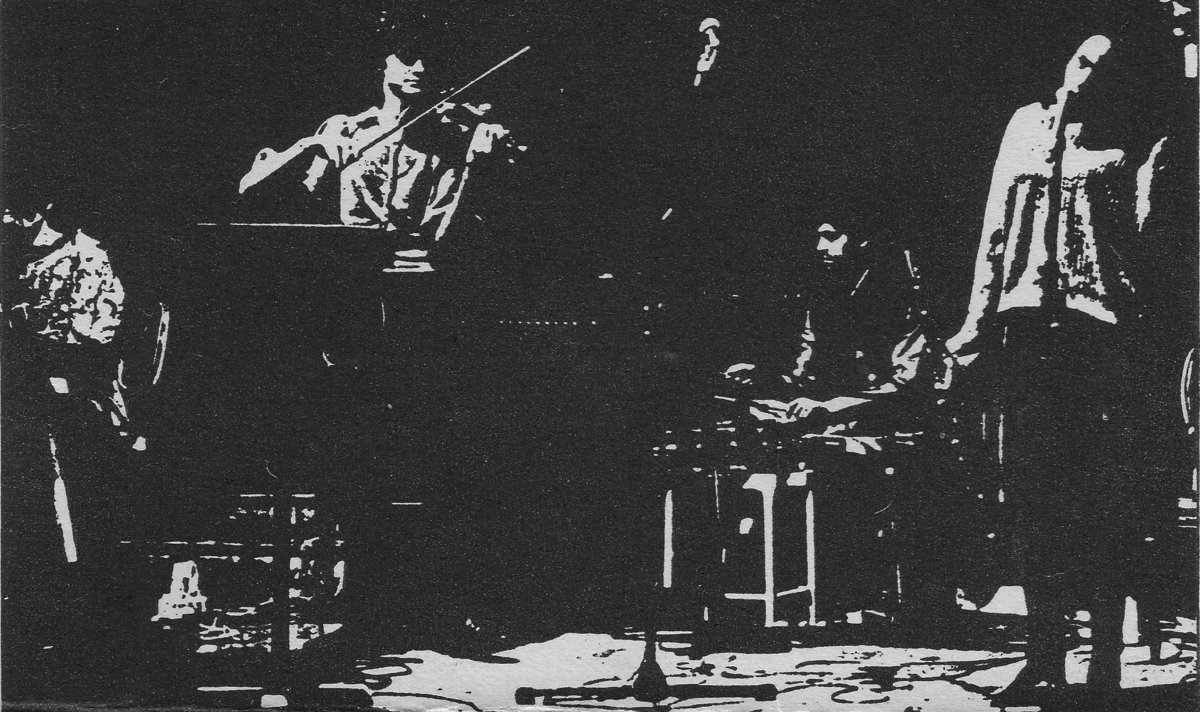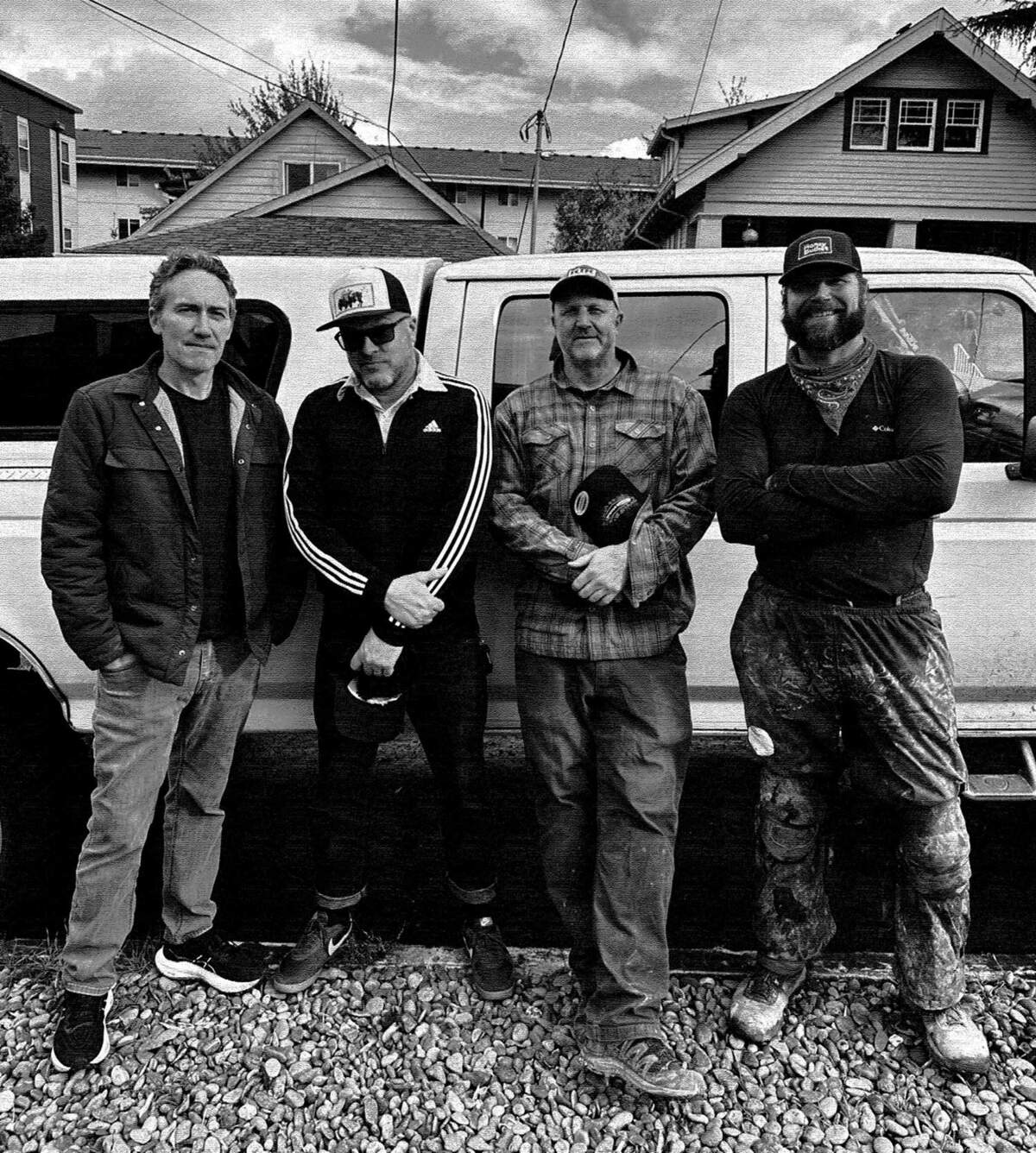Officer! | The Work | Interview
‘Paragraphs And Principles’ is the most ambitious album yet by the experimental, maverick pop group Officer!.
The group has surprised itself with this dazzling yet almost dangerous collection of pieces that keep alive the glorious memory of composer Cornelius Cardew – comrade and champion. His work, while of its time, remains strangely contemporary. It is difficult music – mystifying perhaps, idealistic certainly, and contentious without doubt. That said, Cardew was also drawn to rousing, goose-bump melodies that wear their politics on their sleeves. Since his untimely and sinister death in 1981, the world has come full circle and Cardew’s desire for rebellion, democratisation, rejection of crass popularism, and a revolution in politics, thought and approach have all become relevant once more. Officer!’s tribute to Cardew features several dynamic re-interpretations of his key works, as well new music that draws inspiration from his principles and philosophy. For this outing, Officer! is Mick Hobbs, Felix Fiedorowicz and Bill Gilonis alongside a stunning line-up of 30 performers from 8 countries. No one knows quite how this project came about – it’s almost an international conspiracy, and certainly a closely guarded secret. We hope only that upon their unleashing, these fierce new sounds may be heard by as many ears as possible.
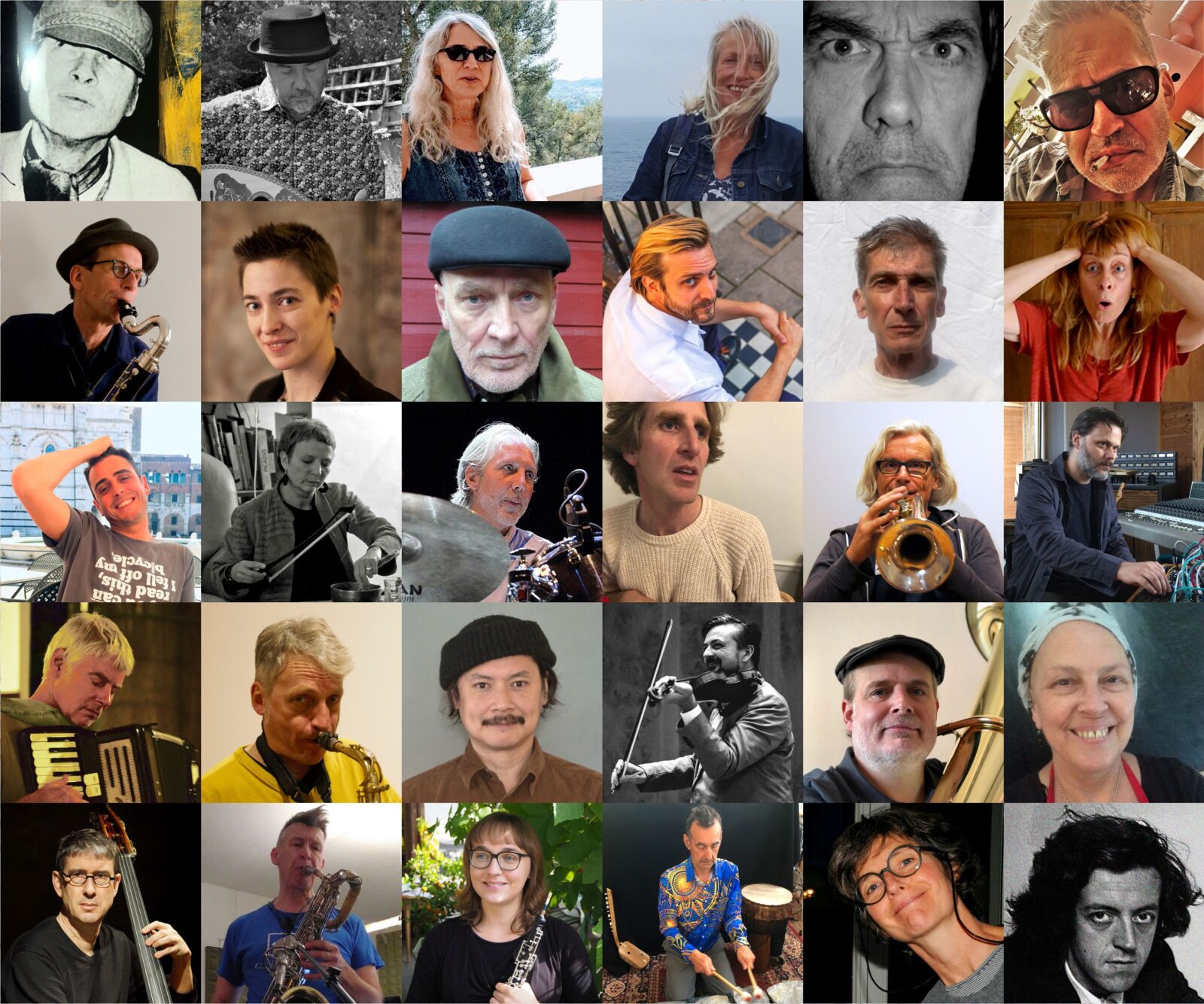
I’m very excited to talk about your new album which was recently released by Jelodanti Records. ‘Paragraphs And Principles’ might be one of the most ambitious albums yet. How long did you work on it?
Bill Gilonis: Mick Hobbs told me about the project around May 2019 and asked if I’d like to play some clarinet on ‘Albania’. I suggested to Felix Fiedorowicz that he arrange that track for my Zürich band ‘Blasnost’, which he did. From then on Felix, Mick and I were ping-ponging audio files back and forth between Ithaca, London and Zürich. I played a lot of clarinet, recruited and recorded musicians and – later on – dealt with administrative tasks such as funding applications, making payments, et cetera. The final mixing session was on 15. 6. 2021 and the CD came out about 6 months after that. So I was involved for well over two years.
Mick Hobbs: It was over two years, and possibly ain’t over yet.
Felix Fiedorowicz: I began composing and arranging this music sometime in 2019. I think I started with the first part of ‘Winter Potato #3’. At the time, I had no vision in mind. I just wanted to re-connect with the experimental music of the 1960s, which continues to mean so much to me. The musical process continues and I plan to privately release various tracks not included on the album soon. There will also be a couple of remixes which are closer to my original intention.
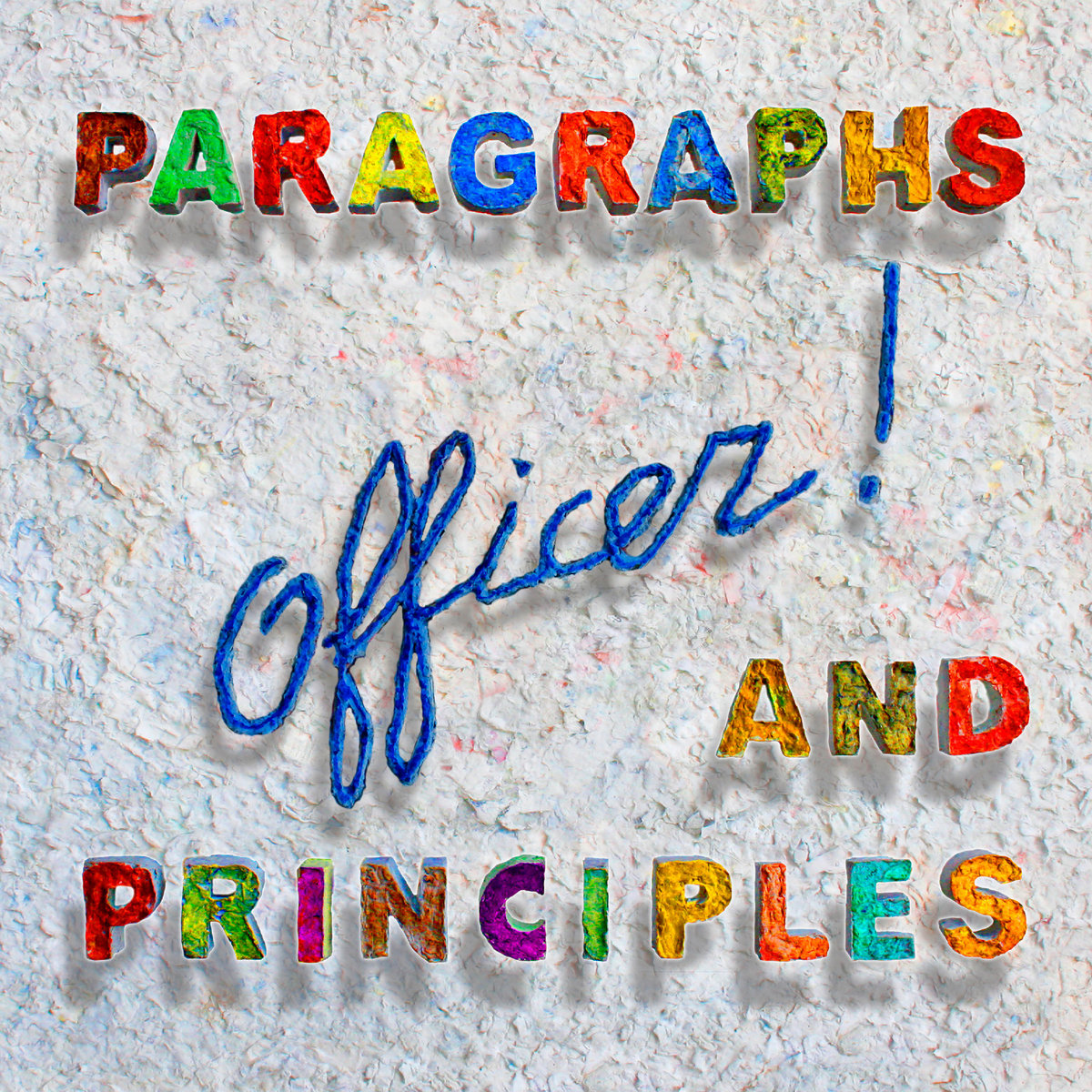
When did you first encounter the music of Cornelius Cardew and what in particular you find fascinating?
Bill: I was aware of Cornelius Cardew from the late 70s but don’t remember listening to recordings or hearing any of his work being performed live.
Felix: As a schoolboy in the late 60s, early 70s, interested in contemporary music, Cardew’s name was part of a long list that included Stockhausen, Cage, Berio, Ligeti, Kagel and countless others. I remember going to London and visiting the great music publishing houses of the time and buying scores with the little money I had. Going to concerts too. I was enthusiastically collecting records, of course. There was a great budget label at the time called Heliodor Wergo. But I would also buy exciting releases on DGG and Philips.
Two years ago I interviewed John Tilbury (AMM), who actually played with Cornelius Cardew in the improvisation group The Scratch Orchestra. Are you familiar with The Scratch Orchestra?
Felix: I disagree that The Scratch Orchestra should be classed merely as an “improvisation group”. It was much more than that. It was an experiment in trying to invent a true musical democracy. The equalisation of rights between professional musicians, amateur musicians and non-musicians. A worthy endeavour, you might think. Ideally, yes! It is important to remember that Cardew lay at the heart of this enterprise. He was almost the “lead negotiator and peace maker” between various factions in the Orchestra. This entailed compromise.
I remember that I went to a couple of meetings. No music was played. Just endless arguments! Cardew was clearly unhappy with things and the end was nigh. It was no longer the place for me.
Cardew was always very generous and would happily take on board the views of the many disparate political elements. The contradiction came when he realised that he would have to agree to things in which he had no belief. The adoption of a single, unshakeable political ideology was the only answer. Some years later, I remember going to his house in North London and he played some of my inept piano compositions from sight on his upright piano. I was a member of a rival Marxist-Leninist organisation then. He was most kind, gracious and encouraging. Musically and ideologically. That was the sort of man he was.
Tilbury’s book, Cornelius Cardew—A Life Unfinished suggests that the possibility that Cardew was killed because of his prominent Marxist-Leninist involvement “cannot be ruled out”. What do you think?
Felix: In the end, Cardew, as a person and musician, saw his role as a servant of the Marxist-Leninist revolution. He knew the risks involved.
Mick: He died in a hit-and-run motor car killing while walking to his home from an underground station on a snowy night in East London in December 1981.
‘Officer!’s tribute to Cardew features several dynamic re-interpretations of his key works, as well as new music that draws inspiration from his principles and philosophy. Would you like to share some insight about each track appearing on the latest album?
We’ll do our best.
‘Three Rules And Eight Points’
Felix: This is an iconic tune popularised in the era of the Chinese Cultural Revolution. You’ll hear it used in many ballets and operas of the period. It had to be included. Anyway, I had arranged a few bars of a piece by Oli’s band, and in return, I asked him to make an arrangement of the melody of this song. His response with midi files was swift! His approach was innovative and fresh, making a final composition for Officer! was a breeze for me as an arranger. Much of what you hear is down to his invention.
‘Two Paragraphs’
Felix: Rather than make a performance based on Cardew’s score of ‘The Great Learning’, I decided to re-invent my memories of The Scratch Orchestra performance at the Proms in 1972. Strangely, this still has great resonance with me. I replaced the Ezra Pound translation of the text by Confucius, used originally, with another, which is more “classical”. The vocals by Mick and Joey Stack remain compelling, as does the percussion played by Rick Wilson.
Mick: It’s interesting to compare this with the version on the flip of Officer!’s ‘Brexit means ‘Toxic’’7”. It sort of shows what has happened, in the interim.
‘The Song Of Ruthless Criticism’
Felix: This was originally written as a piece for three clarinets, rather in the style of Stravinsky. I still like that idea! However, the music progressed to a fuller arrangement for Officer!. Mick then suggested we request the musicianship of Look de Bouk, a wonderful French group. The results are truly unique and inspired. I would also add that they are unexpected and authentic. I love this one. Luc & Kwettep thoughtfully gave their finest work to it, and it brings to the front Bill’s great stuff with a clarinet or two.
‘The Song About Navigation’
Felix: Mick was keen that we adapt the classic translation of the Chinese text for this song. I had no massive issues with this and we went through various sketches. The text you hear on the album is the final version, but here is an earlier one:
Sailing the seas depends on navigation,
Life and Light depend on the sun,
Crops depend on April showers and dewdrops,
Making revolution, on Mao Tse Tung Thought.
Fish can’t leave the water,
Nor melons leave their vines,
The masses of all nations must unite in the Commwunist Party,
Mao Tse Tung thought is the star that guides us in our lives.
Mao Zedung thought is the star that forever shines.
I thank my neighbour Salvatore for his few bars on conga.
‘The Croppy Boy’
Felix: Probably one of Cardew’s most evocative piano pieces, based on a folk tune from the old Irish resistance. For some reason, I was inspired to make a sort of “affectionate tribute” to the music of Bohren & der Club of Gore. I liked the idea of resistance being celebrated in the most downbeat way possible. No fanfare in this case. Just a dark, smokey, illicit ambience of some imagined nightclub in a fictional Berlin. The resulting decadence would probably have upset Cardew! We’ll never know, but I personally struggled with a drum track for a long while to “crack” this one.
Alison Craig: Done deep into the first Covid hibernation period, Felix and Mick asked if me and Mary (Currie) would add some vocals to the instrumental backing track they were in the process of assembling. Felix said he had in mind two women singing quite separately, in a 3am, smoky nightclub kind of way. Mary responded with her vocal ideas first, recorded on her mobile phone via an app that she’d downloaded. I thought I’d better not listen to what she’d done, in case I might be tempted to respond to what she was doing, then we might not achieve the effect of two separate, individual voices. So I didn’t actually hear Mary’s part until I’d recorded mine (via a cheap mic on Audacity). I was pleasantly surprised at how well the two parts fitted together over the moody instrumentation that Felix and Mick had been building up. Some really nice “rough mixes” were made of the track at this stage, then some more instrumentation and the words got added. I have to confess I didn’t know anything about the history of The Croppy Boys until I got involved with this track. I did a bit of research, subsequently pulling out some key names and phrases. I kind of imagined that if they were used it would be as single words or short phrases, highly processed, barely recognisable, and set well back in the mix, so I was somewhat surprised when they were used up front and as a single text. There’s been a few quite diverse mixes of this track. Every one of them sounds good in their own way. When I hear the track now, it takes me right back to lockdown, standing on my London doorstep at night time, listening to the latest mix, and gazing out onto an eerily quiet street.
Mick: That last bit takes me right back.
‘Moscow Nights’
Felix: It is a shame that recent events have slightly “soured” the cherry that is this track. However, I look at the piece as an historical document, like all of the other tracks on the album, and judge it, ideologically, in that way. After all, there is not a State on Earth which does not have blood on its hands! Why include the song? Well, I thought it important to add a touch of familiarity to the project. A kind of “safe zone”, if you like. I always find that a sudden shift of mood can be not only “comforting”, but subversive also.
Mick: I remember being in Moscow with the Kalahari Surfers, and, in the comfort of the tiny hotel room I was sleeping in, turning on the little radio I always take with me. It was the end of another great night in this great city. We would have eaten at the Society of Composers, with many venerable bearded men of music there, though all I found to eat during several “meals” there (I’m vegetarian) was the garnish at the edge of the large silver platters on the great tables. I smiled as the seductive piece we knew as ‘Midnight in Moscow’ was played at the top of the hour on State radio, at the stroke of midnight. It’s good to have some fond memories of Mother Russia; I don’t expect there to be new ones for some time to come.
‘Make The Past Serve The Present’
Felix: Dare I say that this piece is iconic? It has its roots in the 70s with my then involvement in the Marxist-Leninist movement and the extraordinary energy of punk. Mick came up with a 4 chord sequence that represented the refrain. It was recorded in many versions in Mick’s North London flat on the worst possible recording equipment! But the sound was great. It was meant to be a rebellion, and continues to be so, I think. No matter your political views, if you cannot rebel, then you must comply.
Jeffrey McGrath: It was good fortune and some small town – big world phenomena that led to my invitation to this Officer! record. And like any true initiation, it was complete with a kind of blindfolded chance/dare – to humiliate myself or stand gasping for air in victory. Their proposal: play and record the frame of a song written by Felix and Mick some decades before – BUT to do so without hearing any kind of audio reference. Only a kind of verbal song recipe shared by its original authors and just descriptions (I can’t read music). With this the distinct understanding of no limits. And all subject to editing by the band. It turned out to be a truly joyous mission and a mission accomplished like no other. Hearing the wild gang of vocals for the first time, I was wowed by the splendor of the project and by the spirit of collaboration itself.
Stephen Santillan: Felix sent us the song structure and described how he wanted the song to feel. I remember he used “high energy” as a description. I ended up bowing a dulcimer for one of the layers, just for the texture. I had no idea of the Chinese revolutionary song concept behind this track, and how the erh-hu like timbre was a perfect match. The structure was short and fast so we finished up playing around with an extended middle section, which might have been longer than the verses at first. It was an open section, so we were free to play around with different ideas. I ended up recording a second set of drums to start playing off rhythm with the drums that were holding the song together. Since anything was possible in the studio, it presented the perfect opportunity to play around with that idea. Once the bridge section was over, the verse was to come back in. But because the middle was so long, the last verse seemed almost too short, so we introduced some drone elements that extended through the last verse and into a short outro to finish up the song. That drone element was triumphantly thickened in the finished version, which added even more heft to the short verse restatement. It was a really fun experience to realize a song from a short set of instructions, and the finished version far exceeded what we had imagined. So many wonderful surprises! My favorite were the saxes that come in at the end of the bridge! What a strange and wonderful idea of having people from all over the world, who have never met before, working on and adding to this track. I’m very thankful for being able to be part of this communal effort.
Jared Donovan Paolini: … digging back into my mind about these sessions … I think we were excited to do it but a little perplexed about how to approach things. The instructions from Mick and Felix were somehow equally vague and specific. Steve made a simple guide track with the piano chords and then we recorded several different instruments playing over the top. I don’t think the initial intention was to use so many layers at once, more to have options for the Officer! people to work with. However, once we got in the studio we got into the idea of making a little orchestra out of everything we had done. Since we were free from “writing” the song we could just focus on experimenting with different sounds, textures, et cetera. Which was a lot of fun. Because it wasn’t exactly our song, we didn’t have a lot of ego or attachments to anything and so the writing and arranging of parts was very collaborative and it felt like each part was from all of us in some way. The energy of those sessions is what I imagined being in Officer! would be like so it remains one of my favorite experiences working in the studio.
Xentos Fray Bentos: My involvement in ‘Make The Past Serve The Present’ stemmed from a request from Bill to add a touch of voice. I sang the ‘Make The Past’ line, added a wee harmony and ‘twas done. I connected to my Oirish [Irish] roots when I sang as it’s there I can find a ready source of tragedy and wit to stir my soggy Gaelic soul. I also had the great pleasure thrust toward me of sequencing the tracks for LP – a true honour even if no brittle gongs or flashing sword tips were involved. I gave my spare copy of the CD to my pal Simon Lucas who listens deeply to everything that crosses his hi-fi and is a long-standing Henry Cow fan. He’s finding the album has great depth and is highly enjoyable.
I’ve been involved in a number of executions of this piece in my long life, but I love this one the most, because of its collaborative spirit and noisy sound.
‘Winter Potato #3’
Felix: It was always important to me that some material from Cardew’s experimental past was included on the album. Being in touch with Alig Fodder, and having listened to some of his recent work, I sent him an arrangement I had made of the third movement of Cardew’s ‘3 Winter Potatoes’. He came back with what you heard. A marvellous reminiscence of the electro-acoustic works of Stockhausen, Tudor and Cage from the 1960s.
Alig Pearce: ‘Winter Potato’ is an impersonal reduction of an arrangement by Felix Fiedorowicz. I devised an algorithm in Logic 9 for “automatic remixes”. This was something like a virtual pedal board – a chain of gates, spatial filters and slow delays. Before “mixing” the composition I slowed it down and copied it onto two tracks with different time-stretching parameters that made some pitch elements mobile and microtonal. The rather random mix was intended to remove approximately 50% of the material and to linger on insignificant details. It can loosely be described as a nod towards John Cage’s ideas on indeterminacy.
‘The Telephone Song’
Felix: This is a very impressionistic adaptation of a monophonic children’s song from the Cultural Revolution. My intention with this piece was to evoke an aural image of the Cold War. I remember going to my local cinema in the 60s to watch The Ipcress File and James Bond! The Europe portrayed, West and East, is deliberately dismal. A dark world where no communication is certain, or to be trusted. Nor anyone! A propaganda of manipulation and untruths! It looks like nothing much has changed.
Mick: With some strident telephone tones, the as-yet unreleased remix of this piece is quite alarming, even disturbing. The version that appears on the album, though, continues to grow on me with each listen, and is exquisitely played by Ben at the piano.
Felix: Ben’s performance is quite superb! I remember writing to him at the time, saying how much it reminded me of a performance of Erik Satie or Francis Poulenc.
‘The East Is Red’
Felix: Cardew’s original piano piece has always been a funky favourite of mine. Boogie woogie on a Steinway Grand, but without the traditional chord changes! It follows more the original melody of the pentatonic Chinese original. Some of the finest instrumental playing on the album is to be found in this track and Bill Gilonis is responsible for much of it. A quite superb attention to detail! The chorus actually reminded me of that track with lyrics lifted from Jarry’s ‘Ubu’ that Henry Cow did years ago, using a text by Alfred Jarry. It is good to know that the theatre of the absurd is not dead yet! This is the best way to think of this track in the modern world.
All hail Père Ubu, our great financier.
I say this, because presenting a virtual National Anthem from the era of the Chinese Cultural Revolution is not easy in the context of the miserable present. But here is my prosaic rendition of the text used on the album:
The East is Red.
And it is from the East that the Sun rises.
China has, as its Sun, Mao Tse Tung!
He works for the People.
And yet, even in the darkness,
He becomes the Star of liberation.
Jeroen: Being one of Bill’s neighbourly recruits, my work on the recordings started by playing a baritone-sax line on Albania. One thing led to another and after playing some sax lines here and there and having done some of the mixes, the Grand Finale came when Bill said he would like to have a big choir added to ‘The East Is Red’. So, I wrote a choir arrangement as a proposal, which he happily accepted. In the F.ishing B.akery L.abs studio we recorded three voices: Bill’s, Sophie’s and mine about 8 times on separate tracks in different registers, and luckily I just had a very live-like-kind-of-a-reverb-plugin at my disposal, to give it an outside feeling, and with which I could also nicely place the vocals in a classical choir arrangement. After putting all the ingredients together, I was very happy to mix the song, and quite satisfied with the result.
Felix: The text we used on the album:
Red is the East, Rises the Sun,
China has given birth to Mao Zedong!
For the people’s happiness he works.
Hu, Ya, Heh, Hah,
He is China’s liberating star!
‘Fish And Ships’
Felix: This is, personally, a highlight on the album. I like the fact that it musically describes division, contempt and totalitarianism, and in an uncompromising, experimental way. I had no part in its composition, except that Bill had sent me some out-takes from the musicians he was working with, and I sent these on to Mick. The vocals of Joey Stack carry the meaning of the piece.
The fish was Kandinsky’s and the ships belonged to a world of navigation to which we refer elsewhere on this album. Dominic Cummings is a scumbag who should never have had any part in the UK’s domestic and European policies. His subsequent and ongoing revenge on our glorious leader Johnson does not redeem him, though credit where credit’s due.
‘Albania, My Dear Comrade And Brother’
Felix: The “secretive” State of Albania was always held in some reverence by the Marxist-Leninist movement of the late 60s/70s. Cardew often mentioned it as an exemplar. I found a monophonic tune about Albania written in China during the Cultural Revolution and decided to harmonise and arrange it. Bill and his troupe in Zürich have made this incredibly evocative, reminding me of a village band somewhere in the Balkans.
Yes, it’s a stunning performance by Blasnost members. And the cuica can be a most expressive musical instrument, and I’ve always enjoyed Bill’s thumb piano playing too. Even the naughty doggy performs well on this one.
‘Unintended Music For Ensemble’
Felix: One of the great successes of the album. The track is actually a dovetail of two entirely different musical sources.
1. Firstly, I worked on an arrangement of the score of Cardew’s ‘Unintended Music for Piano’. Much was unintelligible, but exciting to conjecture and edit!
2. Secondly, Mick had found some old recordings of a version of ‘Make The Past Serve The Present’.
I put these together and in the words of Jean-Luc Godard: “One Plus One”. Just to set the records straight, the final guitar solo is by Jeff McGrath. I ripped it from a demo he sent me!
Mick: I have come to see this piece, which I recall having reservations about on first hearing of Felix’s arrangement, as now firmly central and quintessential to the meaning and style of the collection presented here. For me it’s a resumé of my experiences with music from China.
‘Red Flag Prelude’
Felix: I find this the most perplexing of Cardew’s piano pieces. I suspect that he satirises the British Labour Party of the (present) day as well as the revisionist social-democratic Left in general. Neither of these have any right to use the song as an anthem, of course. I found it interesting that Cardew mocked the sounds of Big Ben in his score, and these I retained, along with many nostalgic references. Joey Stack’s vocals remain totemic. In my last phone conversation with her, she related that she’d played the track to her daughter. The latter responded that she’d never heard her mother sounding so ferocious.
Mick: Jo’s lifelong socialism and her great voice made this, her last recorded work (casually captured on a little device in her daughter’s bedroom while she monitored the track in headphones from another device), an easily-executed contribution to the very serious business of keeping the flag flying. It’s a thing that seemed so effortlessly done, so “factually” sung, and which came so naturally to her, but nonetheless a shining performance, and no other person we know could have done this.
Officer! consists of you, Felix and Bill Gilonis alongside a stunning line-up of 30 performers from 8 countries. How did you manage to do that?
Mick: I’m in London, Felix in Ithaca, Greece and Bill lives in Zürich, Switzerland. As we worked from Felix’s initial “demos”, we drew in other players and recorded their contributions, which were generally brilliant.
Bill: We “simply” invited people to contribute one by one. I know several musicians in and around Zürich, which gave us access to saxophones, trumpet, bass trumpet, tuba, oboe, descant recorder, flute, piccolo, violin, double bass, mellotron and drums. I also invited a few old pals from further away: Catherine Jauniaux, Andy Bole and Xentos Fray Bentos (Jim Welton).
Felix: I was always pretty much thrilled by the results that the international musicians contributed. A bit like a virtual Scratch Orchestra!
The album itself is quite complex. Was it difficult to get all the material together?
Felix: From my perspective, I do not find the album complex musically.
Bill: Yes. There was some struggle involved in making it all work.
Felix: From a logistical point of view, Bill is right. But I was thankfully free of those concerns. I just came up with the tunes!!
How are you coping with the pandemic as an active musician? Have you found the isolation creatively challenging or freeing?
Bill: The working method for ‘Paragraphs and Principles’ wasn’t determined by the pandemic. We would have worked in isolation from one another with or without Corona. I live in Switzerland, Felix lives in Greece and Mick in London. With the possible exception of ‘Make The Past Serve The Present’ (& ‘Winter Potato’), no tracks were played live in the studio. Most of the recording was done in home studios, many of which were pretty basic: a DAW (digital audio workstation), monitors, an audio interface, one mic and a mic stand. That’s what I used for recording the tuba, trumpet, violin, clarinets, recorder, oboe, shakuhachi, thumb piano, guitar, bass, voice, piccolo and flute. Other instruments were recorded in studios and home studios in Switzerland, the UK, the US, France and Greece.
Felix: I live near the top of a mountain in a largely deserted village. Isolation is taken as read and actually a blessing in many ways. I have made for myself a very dystopian creative universe. The name of the village is Exoghi. This would roughly translate as “the alien land”.
Would you mind if we talk about some of your early influences?
Bill: Soft Machine, Henry Cow, Captain Beefheart, Carla Bley, John Coltrane, Sun Ra, The Beatles, Marlene Dietrich, Brecht/Weill, Dave Brubeck, Van der Graaf Generator, Canterbury, punk, Simon & Garfunkel, Herb Alpert, ECM, Solution, Focus …
Mick: I would echo many of these, but maybe throw in The Kinks, The Velvet Underground, Henry Cow and RIO, and Syd. Oh, and Zappa.
Felix: There are one or two great names in Bill’s list, but apart from a host of 20th century classical composers, I would add The Art Bears, Univers Zero, Faust, Can, The Third Ear Band, Eno and The Plastic Ono Band.

What are some of the early endeavors in music?
Bill: In the late 70s I played in a lot of short-lived improv bands, some of which would form for just one gig. We often played at the (freezing-in-winter) LMC (London Musicians Collective), but also outdoors, in church halls and small venues like the Clinker in Brixton. The audiences were often not much bigger than the group playing. In 1978 I started playing with Tim (Hodgkinson) – tape collages, “instant composing”, home recording. In the early 80s I was playing (mostly guitar but sometimes alto sax or clarinet) with The Work, The Lowest Note, The Wandsworth Municipal Street Orchestra, Hail and Lindsay Cooper’s Film Music Orchestra plus a few one-off projects. In 1983 I became an engineer at – and part owner of – Cold Storage studio together with Charles Hayward, Tim Hodgkinson, Chris Cutler and Ben Young.
Felix: During the late 60s/early 70s I began making my own electronic, concrete and electro-acoustic music using the facilities of my school’s physics laboratory. I also experimented with 8mm film and video. I wrote two great pieces for the school Wind Quartet and also made performances of Cage, Stockhausen as well as my own material.
Mick: Well f**k my hat, I didn’t know that. I’d borrowed my brother’s double bass, and got playing in various jazz situations, as well as rocking out whenever the opportunity presented itself.
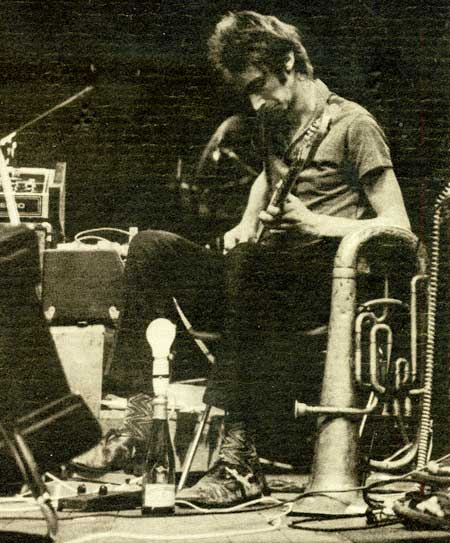
Let’s start with The Work; what’s the story behind its formation and what can you tell us about ‘Slow Crimes’ – a truly unique sounding album.
Bill: Tim and I started playing together in 1978. An ad for a bass player that we placed in the Melody Maker was answered by Mick and he introduced us to drummer Rick. The four of us rehearsed intensively at Tim’s house in Balham for 10 weeks before doing some gigs in France and Belgium in early 1980. The second gig was at the RIO festival in Reims. Our first release – ‘I Hate America’ – came out in 1981.

‘Slow Crimes’ followed in 1982. It was recorded at Cold Storage and Surrey Sound Studios (UK), Sunrise Studio (Switzerland) and a rehearsal room in Brussels.

I think we all shared a “break-or-experiment-with-the-rules” approach to recording/production techniques. I can only remember a few details – a contact mic on a cymbal … some double-speed (and backwards?) euphonium on ‘Do It’. Each mix was an all-hands-on-the-desk performance in those (pre-digital) days.
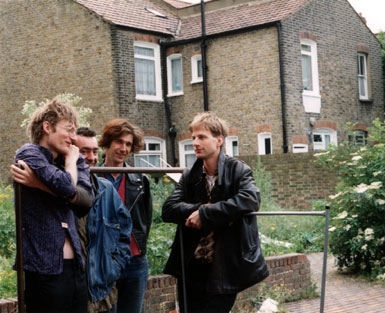
What role did Chris Cutler have?
Bill: Chris Cutler came with us to Yugoslavia once as a cook/roadie. An extended Work – with Chris Cutler (and Catherine Jauniaux and Bob Vanderbob) – played at the 1981 RIO festival in Reims – a fragment of a rehearsal for that concert appears on ‘Slow Crimes’. Chris later took over Rick’s stool in the line-up of the Work that went to Japan.
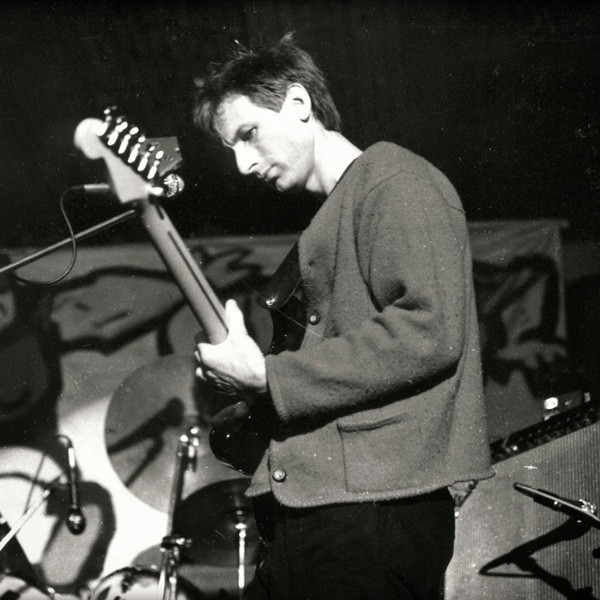
In the same year, ‘Live in Japan’ was released as well.
Bill: Rick went to India to study drumming in late ‘81 or early ‘82 and Mick left soon thereafter due to musical differences – and just before a scheduled tour of Japan. Tim and I invited Chris Cutler and Jim Welton (Xentos Fray Bentos) to do the tour and a final gig in Zürich, after which there was a 7-year gap before the original group reformed in 1989.
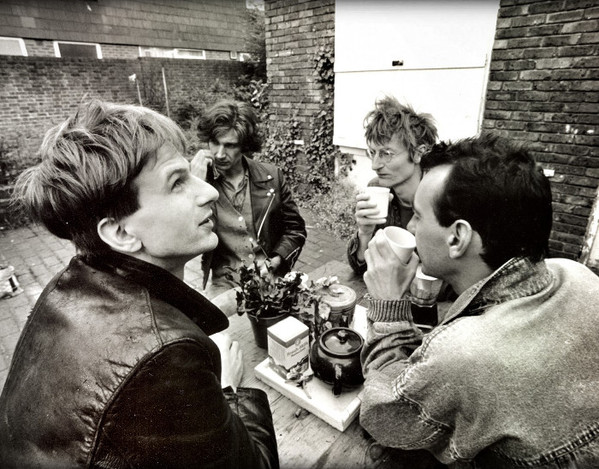
You issued several live recordings back then. Tell us about some of the most interesting gigs.
Bill: My first “big” gig was the 1980 RIO festival, which made an impression on me after a lot of two-people-and-a-dog audiences. I remember a gig we did at the Tavastia Club in Helsinki because Robert Wyatt was in the audience (he left before the end). In 1981 we played at the AJZ (Autonome Jugendzentrum) in Zurich to a volatile crowd – some loving it and others throwing beer bottles at the stage. The gigs in Prague shortly after the Berlin Wall came down were also memorable with big and exuberant audiences. There was a fantastic but short-lived energy in eastern Europe at that time.
It was great to play to audiences willing to listen, which we did in Europe, and to be away from London and the UK, which seemed to me often to receive what we offered in a blasé sort of way.
Many projects later, ‘Rubber Cage’ was released in 1989. The sound took a different direction.
Bill: ‘Rubber Cage’ was recorded at Cold Storage. I think the basic tracks were recorded live (without the vocals) with Charles Bullen (and us) engineering.
What about ‘See’?
Bill: See has parallels to ‘Paragraphs and Principles’ in the way the material was generated and recorded. In both cases the final sound often combines synthesised or sampled sounds and real instruments. ‘Paragraphs and Principles’ is perhaps the more successful example of that sort of approach.
What’s your connection with Family Fodder, another truly unique group of musicians.
Felix: Perhaps “unique”, but remember that in those days we all worked with musicians that were around and happy to contribute freely to each other’s projects. This trend continues with Officer! to this day, I guess? My involvement with Family Fodder was fleeting. I played bassoon on the ‘Frank Sumatra’ project and contributed some playing and a track on the ‘Monkey Banana Kitchen’ LP. Much of the ‘All Styles’ LP was made at my home studio in Southall. After that, I was dropped from the collective! I guess I was surplus to requirements!
Mick: I’d known Alig since teenage years. He was and is a most exceptional musician. I was never near any epicenter of Family Fodder, but enjoyed my visits to this interesting region, and have been moved by much of the music.
In 1983 you released your first ‘Officer!’ tape. Was this a demo release or was it officially released? What can you tell us about the early material?
Felix: In no way was this a “demo”. The material you hear has been fully developed and stands unequivocally. In my opinion, it remains the most pure release. Yes, it was our friends at AYAA who stepped up and released this back then, and I’m flattered that Klanggalerie saw fit to make it available again, long after the songs were no longer “new”.
Felix: I would add that a song is always new when one has not heard it before! To me it sounds like early sketches of what will be perfected on later releases.
Felix: Not at all. It is not a question of perfection – rather one of development. One does not “perfect” a song. It should not need perfection. One re-invents it. Okay, the tape is home-recorded. There is nothing wrong with that. Actually, it helps to get straight to the heart of the matter. A song doesn’t happen just once. It happens many times.
Mick: Officer! has rarely been afraid to take another stab at a piece of music, never having felt that anything like perfection had been achieved.
Felix: Mick is dead right! It is a question of reinvention, rather than perfection.
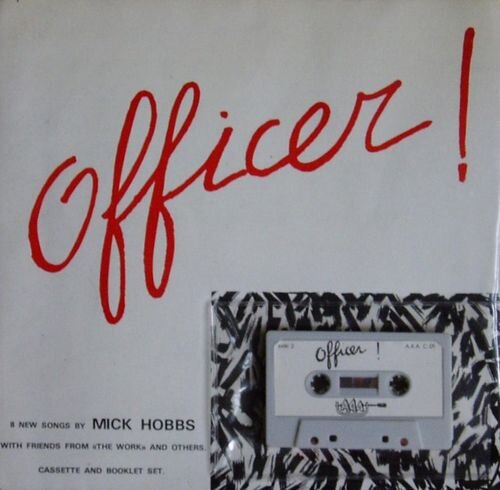
‘Ossification’ is one weird record if I may say so… I’ve been listening to it a lot and can’t get it out of my head. What do you recall from working on this unique mixture of “RIO meets Post Punk”?
Felix: This album is sublime and certainly not weird – to me, at least! We all worked on the music we had ahead of us, and did not think of “labels” that critics might apply to it at a later date.
To me, working on this album was a pure pleasure and a great personal achievement, which I cherish to this day.
Check out the credit list for this record and you will find that ‘Paragraphs and Principles’ is just a continuation of the general approach that Officer! takes to musical collaborations. The results are rich, I would say.

Mick: I agree that we’ve had a consistent approach during our long collective lives.
In 2014 you released an archive recording titled ‘Dead Unique’. Can you share a few words about it?
Mick: Recorded in Baltimore on a stateside visit, at Jason and Martha’s brilliant warehouse close to Lexington Market, with the amazing assistance of many of Jason’s personnel suggestions, especially drummer Mike Evans, who sadly left us recently. And John Dierker, still with us and doing great things. And Benb Gallaher, of course, and Jason Willett himself. It was then placed on a forgotten shelf, while other things in life moved on, but was revisited following a brief moment of lucid recall. Its ‘rediscovery’ and transfer from 8 track cartridge to half inch magnetic tape on rented equipment in London happened. It was worked on and mixed by Steve Wright/Julia Brightly, who made her own contributions and gave it its characteristic sound. Artist Claudia Schmid made the cover, which harks back to that of ‘Ossification’. It was released by Blackest Ever Black label, as a “song cycle”, on LP and CD. I thank them all.

Tell us about The Lo Yo Yo…
Mick: This was a group that my old friend Alig (Alig Pearce of ‘Family Fodder’) started up with drum learner Carrie Brooks, and myself and Joey Stack came onboard for rehearsals and the first gigs, which happened in the UK. Alig played the bass in this group, leaving a guitar for me, but also a range of percussion instruments, some home-made. Jo had a background in piano playing and singing, but hadn’t done these in a group context. Similarly, Carrie was new to both the drum kit and playing in a band. We rehearsed a lot, and developed a sound that was bright and quite poppy, though built on a tough-sounding Atlantic Soul drum and bass axis, with dub/reggae elements also well-represented. Alig tended to write songs on his own, while Jo and I would get together to realise ideas I had, often with recourse to lyrical contributions that came out of a shoebox in which she kept her “scribblings”.
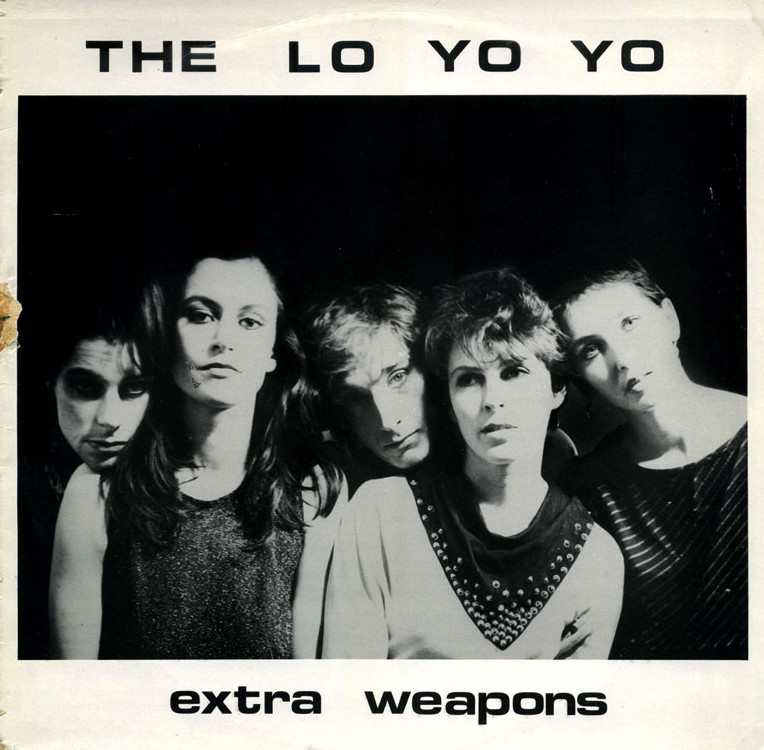
We toured in Europe, once with Look de Bouk – a great pairing of quite different sounds and approaches. We made a lot of friends, as I remember. At some point we were joined by cellist Annie Hunt, and moved towards the recording of our ‘Extra Weapons’ album, done at Cold Storage studio with Charles Bullen producing. Sadly, and I’m still not sure how it happened, it was a poor pressing, so I’ve been relieved that a very recent new edition of this has been made available by Klanggalerei, with a bunch of extra material recorded at gigs with Look de Bouk. We went back to the original tapes where possible, and I’m pleased to say it’s sounding just fine now on the CD medium. After I’d left the group (when I became ill) they went on to do plenty more playing and touring. It was always Jo’s voice that seemed to define the sound of the group to me, and we were all greatly saddened when she died last year.
One of my favorite records from your extensive discography is ‘Spiralling’ by The Momes.
Mick: I loved playing with Tim Hodgkinson and Andy Wake in this rock trio. They were both players who went way beyond a single or simple role in the sound we made, tho’ Tim’s flat guitar was firmly at the centre of the “thrumming” sound we kicked out. Gigs tended to be loud and a little wild. A flat guitar, bass and drums sound was compounded by sequencers and saxes, foot pedals and live effects. The songs were sometimes complex, but always somehow direct. Andy was a student of Indonesian Gamelan music, and that pulled him away from wanting to sit behind a drum kit indefinitely. He is now a leading light in London Gamelan music, and Tim has continued to perform, improvise, compose and conduct for contemporary ensembles, including orchestras.
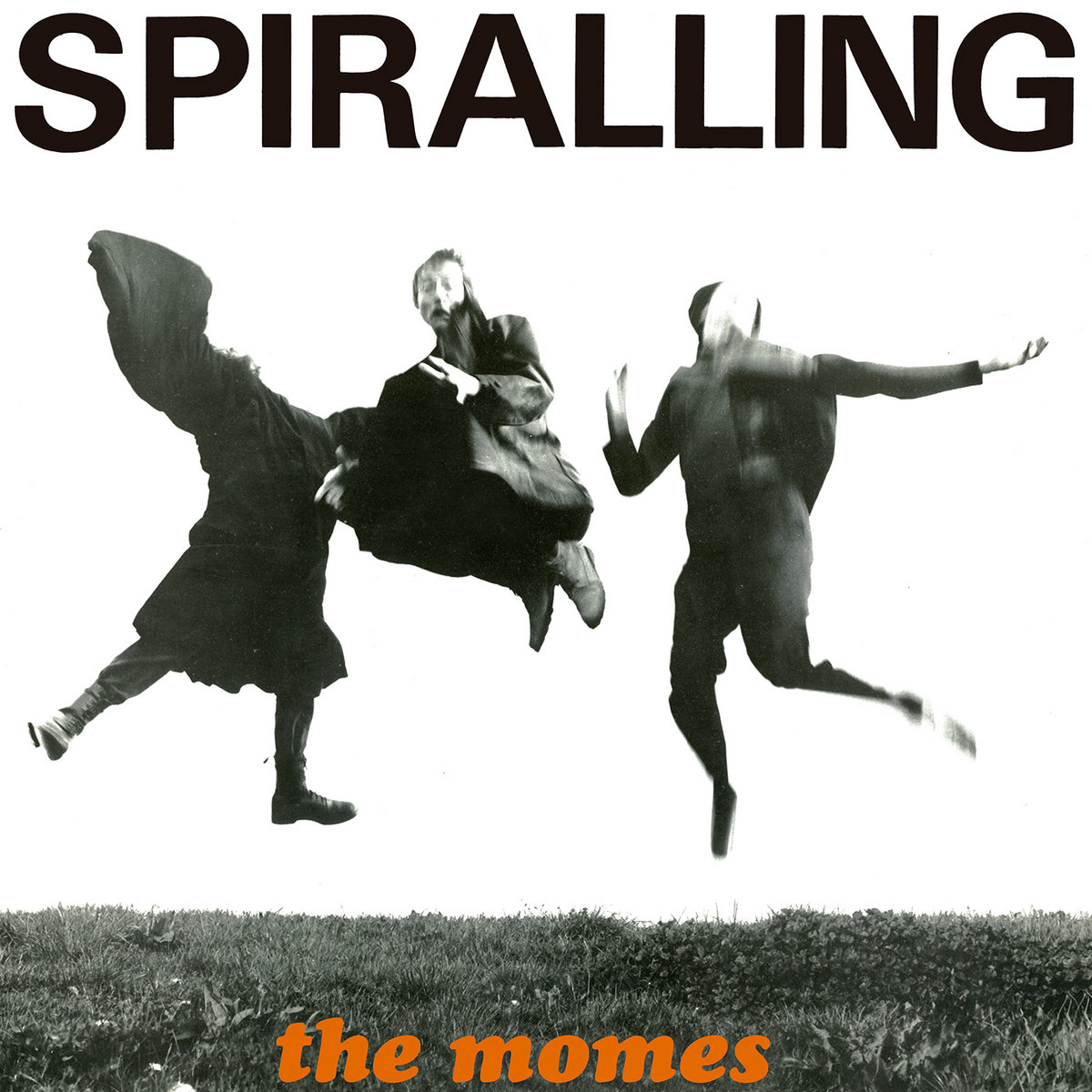
How did your collaboration with (Jad) Fair on Half Japanese/Strobe Talbot come about?
Mick: Jason Willett, who ran a record store and played some odd music himself, phoned me up one day from Baltimore to say how much he liked Officer!. We went on to become great friends. When Jad Fair wanted his Half Japanese to do a European tour, at Jason’s suggestion I was asked if I’d like to take part, and if I could recommend any drummer. “Yes” and “Gilles Rieder”, I said. Gilles lived in Switzerland and had played in Débil Menthol. So we two Europeans joined Jason, Jad and John Sluggett for a tour in Germany. This is still the Half Japanese line-up today, though we’ve not managed to get together again since lockdown began. All the albums, with Joyful Noise and Fire Records have had this same stable personnel, although Half Japanese is often represented by lazy journalists as a band that is constantly changing its lineup. There’s another album in the pipeline which will come out later this year, and I live in hope of us all assembling again on one side or another of the Atlantic Ocean to do more together …
Is there an album that has profoundly affected you more than others?
Mick: So many, and my list would probably change daily.
Felix: Three, from my schoolboy days. Firstly, the album of works by Lutoslawski, released by Philips that included his ‘Concerto For Orchestra / Funeral Music / Venetian Games’. Secondly, the album of Penderecki, also by Philips that included the ‘Auschwitz Oratorio’ and ‘Polymorphia’. Thirdly, the album released on CBS, of Luciano Berio’s ‘Sinfonia; Visage’.
It’s absolutely impossible to cover your discography. Would it be possible for you to choose a few collaborations that still warm your heart?
Mick: ‘Bite My Knee’ with Benb Gallaher and the ‘Strobe Talbot’ recordings made with Benb and Jad Fair, for a start. I enjoyed my time touring in Europe with Kalahari Surfers and some recordings and gigs with Peter Blegvad.
If you could work with any other current artist who would it be?
Mick: Banksy!
Felix: DJ Tiesto or The Hacker or Miss Kittin.
Looking back, who influenced your playing the most and did influences change during the years?
Felix: I don’t play. I made it!
What’s the next project that you’ll be working on, or are working on right now?
Bill: I’m working with Lukas Simonis on a few tracks
Mick: I’m struggling to write a song about a cat who comes to visit me every day. The problem is that the cat doesn’t show any signs of liking my song. It’s a great shame, if not an artistic crisis, and I’m not sure how to proceed with it.
Felix: I’m composing music to accompany Ancient Greek and Roman dramas. This is both historically authentic and contemporary.
You were part of Rock In Opposition, which was a unique movement created by only a few individuals. Would it be possible to write a longer essay about your point of view when it comes to DIY ethics et cetera.
Bill: A robust DIY ethic already prevailed in the music scene I entered in the late 70s. It was very normal for bands to record at home, share equipment, set up their own labels, make their own covers, sell the records at gigs, et cetera. It was fun and felt like progress but there were also problems: boxes of unsold records under beds, royalties not getting into the right pockets. Making the records proved easier than promoting and selling them. And the more successful indie bands were often lured into signing dubious contracts with the same major labels they’d reviled earlier. RIO was definitely a positive development though and it helped get exposure for a number of obscure European bands, including The Work.
Let’s end this interview with some of your favorite albums. Have you found something new lately you would like to recommend to our readers?
Mick: I would prefer that some of your readers would recommend something new to me. I’d promise to listen to some of it.
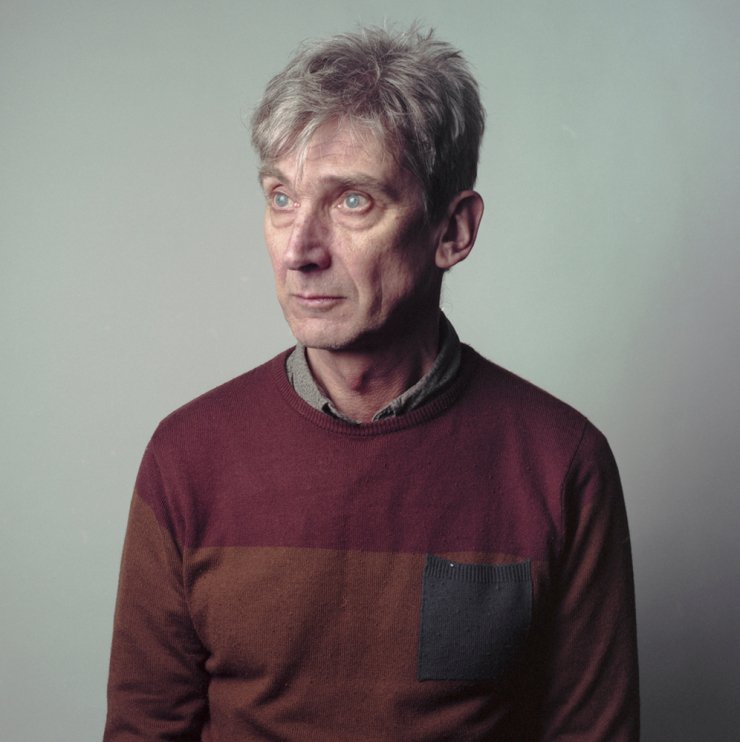
Thank you for taking your time. Last word is yours.
Mick: Zelensky!
Felix: I echo this sentiment with Слава Україні!
Bill: Yes!
Klemen Breznikar
Mick Hobbs Official Website / Facebook / Instagram / Bandcamp / YouTube
Felix Fiedorowicz Facebook
Jelodanti Records Official Website / Facebook / Bandcamp

